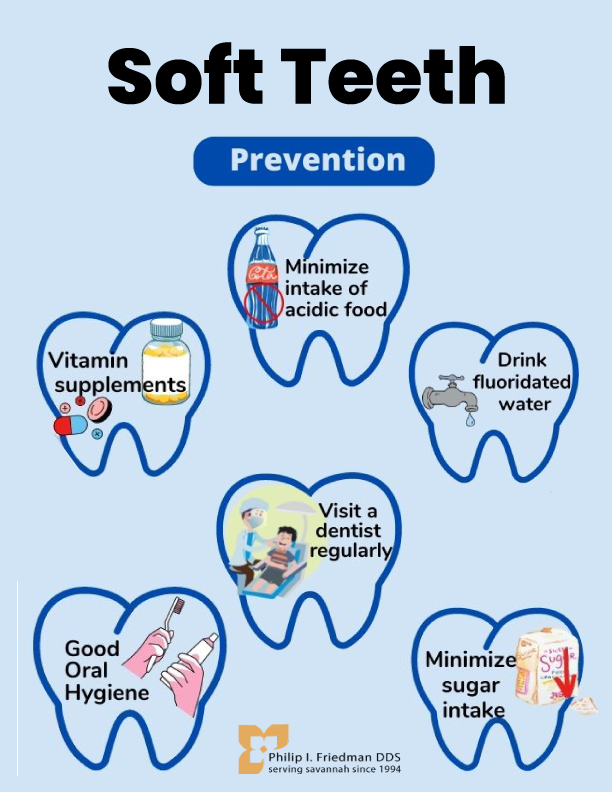Understanding the Root Causes of Soft Teeth and How to Safeguard Your Smile
Have you been told that you have soft teeth but are confused about what causes them or how to treat them? These delicate dental structures can be prone to a myriad of issues. Soft teeth can cause discomfort and also distress. We delve into the root causes of soft teeth and explore effective ways to safeguard your smile.

Soft Teeth Causes: Unraveling the Enigma
Soft teeth, clinically known as dental enamel hypoplasia, refer to a condition where the enamel on the teeth is softer and more porous than usual. In addition, this heightened vulnerability makes the teeth susceptible to various dental problems. With this purpose in mind, understanding the causes of soft teeth is the first step toward maintaining optimal oral health.
Genetic Predisposition: The Silent Culprit
A significant factor contributing to soft teeth is often traced back to genetics. Furthermore, Individuals with a family history of dental enamel issues may find themselves genetically predisposed to softer teeth. If your parents or siblings have experienced challenges related to dental enamel, it’s crucial to be vigilant about your oral hygiene routine and regular dental check-ups.
0certain genes may affect the development and mineralization of dental enamel, leading to a softer composition. Recognizing this hereditary aspect empowers individuals to take proactive measures in their oral care routine.
Nutritional Deficiencies: Building Blocks for Strong Teeth
Another key player in the soft teeth saga is nutritional deficiencies, particularly during crucial stages of tooth development. Adequate intake of essential minerals such as calcium and phosphorus is vital for the proper mineralization of dental enamel. Insufficient levels of these minerals can compromise the strength and density of the enamel, paving the way for soft teeth.
To address this, adopting a balanced diet rich in dairy products, leafy greens, nuts, and fortified foods is paramount. Regular dental consultations can help identify potential nutritional gaps and guide individuals towards appropriate supplements if necessary.
Early Childhood Experiences: The Foundation Matters
The early years of tooth development play a pivotal role in determining dental health later in life. Additionally, excessive exposure to fluoride during these crucial stages can lead to dental fluorosis, a condition characterized by the discoloration and softening of tooth enamel.
Monitoring fluoride intake is essential, whether through drinking water, toothpaste, or another source. Dental professionals can offer guidance on maintaining a fluoride balance to prevent the development of soft teeth while further benefiting from the protective effects of this mineral.

Safeguarding Your Smile: A Holistic Approach
The best road to prevention is to adopt a holistic approach to dental care. Regular dental check-ups, thorough oral hygiene practices, and also mindful dietary choices contribute to preserving the integrity of tooth enamel.
Understanding the root causes of soft teeth empowers individuals to make informed decisions about their oral health. By addressing genetic predispositions, nutritional deficiencies, and early childhood experiences, you can embark on a journey towards a resilient and vibrant smile. Additionally, don’t forget the key lies in proactive care, turning the spotlight on prevention rather than cure.


